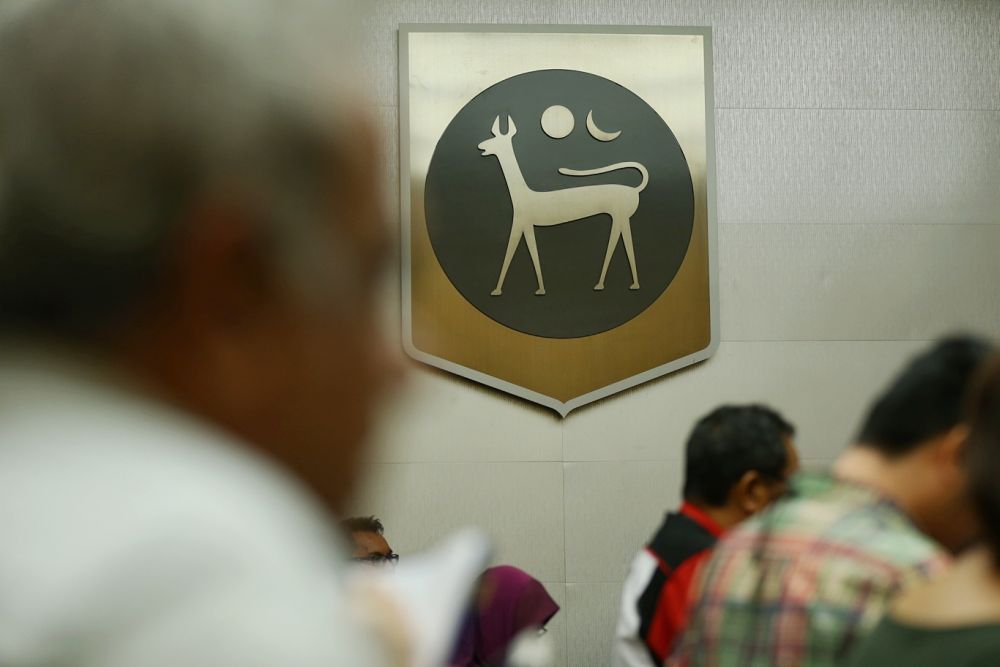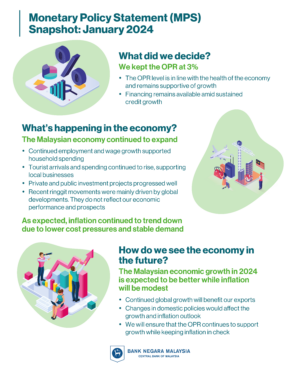THE Monetary Policy Committee (MPC) of Bank Negara Malaysia (BNM) has chosen to maintain the Overnight Policy Rate (OPR) at 3%. The decision comes against the backdrop of a global economy experiencing expansion, primarily driven by robust domestic demand amidst favourable labor market conditions.
While signs of recovery are evident in the electrical and electronics (E&E) sector, global trade remains subdued due to the ongoing shift from goods to services and persistent trade restrictions.
Despite China showing improvement in its economy, the recovery remains modest, largely influenced by weaknesses in the property market.
“While China’s economy continues to show signs of improvement, its recovery remains modest given the weakness in the property market. Global headline and core inflation edged downwards in recent months but continue to be above average,” said BNM in a statement.
Notably, monetary policies worldwide are expected to remain relatively tight in the near term, even as most central banks have peaked in their tightening cycles. The global growth outlook, however, remains susceptible to risks, particularly from geopolitical tensions, unexpected inflation spikes and increased volatility in global financial markets.
For Malaysia, the fourth-quarter advance estimates for gross domestic product (GDP) align with expectations, indicating overall growth for 2023 within the anticipated range. Looking ahead to 2024, growth is anticipated to improve, buoyed by export recovery and resilient domestic expenditure.
Positive factors include sustained employment and wage growth, expected improvement in tourist arrivals and spending, and continued progress in multi-year projects in both private and public sectors.
“Continued employment and wage growth remain supportive of household spending. Tourist arrivals and spending are expected to improve further. Investment activity would be supported by continued progress of multi-year projects in both the private and public sectors, and implementation of catalytic initiatives under the national master plans,” added BNM.
Moreover, inflation in Malaysia moderated in the fourth quarter, driven by lower cost pressures amid stabilising demand conditions. Headline and core inflation for 2023 averaged at 2.5% and 3.0%, respectively, aligning with expectations.
The outlook for 2024 suggests modest inflation, influenced by stable cost and demand conditions. However, risks to the inflation outlook remain, contingent on changes in domestic policy, global commodity prices and financial market developments.
BNM further added that the recent ringgit movements are primarily driven by external factors, and not reflective of the current domestic economic performance and prospects.
“As the risk of heightened volatility in the global financial and foreign exchange markets remains, BNM will continue to ensure sufficient liquidity to support the orderly functioning of the domestic foreign exchange market.
“Financial institutions continue to operate with strong capital and liquidity buffers, with domestic financial conditions remaining conducive to sustain credit growth.”
With the current OPR level, the monetary policy stance continues to support the economy, aligning with the assessment of inflation and growth prospects.
Furthermore, the MPC remains vigilant, closely monitoring ongoing developments to inform assessments of the domestic inflation and growth outlook. The focus is on maintaining a monetary policy stance conducive to sustainable economic growth while ensuring price stability. – Jan 24, 2023










